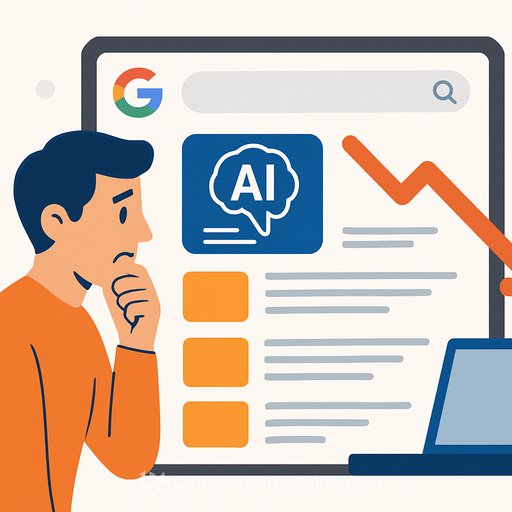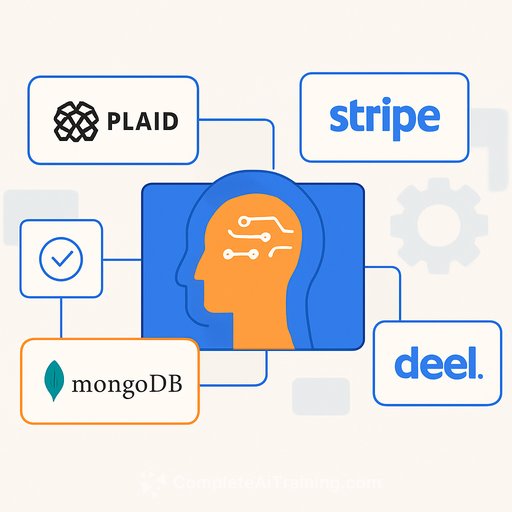Google AI Overviews Slash Traffic to News and Info Sites
Millions of users now see AI-generated summaries—called AI Overviews—at the top of their Google search results. These concise summaries pull information from multiple sources to provide quick answers, reducing the need to click through to original sites. While users can hide these overviews, most don't, fundamentally changing search behaviour.
Recent research from Pew shows a sharp decline in clicks on traditional search results when AI summaries appear. Users shown these summaries are roughly half as likely to explore links below them compared to those without AI Overviews. This shift highlights growing trust in AI answers despite known issues with accuracy and sourcing.
Impact on Traffic and Publishers
News outlets and websites that rely heavily on search engine traffic and ad revenue are taking hits. Sites offering travel guides, health advice, or product reviews have seen organic search traffic drop by more than half over three years, according to Similarweb data. Major publishers like HuffPost and The Washington Post report similar downturns, with HuffPost’s organic search traffic halving since 2022.
Smaller publishers feel the pressure acutely. Some, like Turkey’s Gazete Duvar, have closed after years of declining visits. The Atlantic’s CEO warns this trend will continue as Google shifts from a search engine to an answer engine, pushing publishers to build direct reader relationships rather than relying on Google traffic.
Where Do AI Overviews Pull Their Information?
Google’s AI summaries often source content from Reddit, Wikipedia, and YouTube. Government websites also feature more prominently in AI Overviews than in traditional search results. Interestingly, the presence of news sites remains similar in both formats. Longer, question-like search queries tend to trigger AI summaries more frequently than short keyword searches.
SEO and Click-Through Rates Are Changing
The emergence of AI Overviews is reshaping SEO strategies. Data shows that click-through rates for the top-ranked link on pages with AI summaries have dropped by about 34.5%. Ranking on the first page no longer guarantees traffic or visibility.
Worse, AI summaries sometimes cite other AI-generated content, creating a cycle of recycled, low-quality information. This undermines the reliability of search results and can degrade the quality of AI systems over time, leaving users with vague or inaccurate summaries.
Advertising and Revenue Challenges
Most websites offer free content funded by advertising. Traditionally, Google sends users to these sites, generating ad views and revenue. But with AI Overviews keeping users on Google’s platform, websites lose traffic and ad income.
Search engines drive about 68% of internet sessions, with 90% of those starting on Google. This dominance has long shaped publisher revenue models. Now, AI summaries threaten to break this system.
Despite this, Google’s parent company Alphabet posted record revenue in late 2024, with advertising accounting for over half of its $96.4 billion total revenue. Ads are increasingly placed near or within AI Overviews, capturing revenue that might have gone to external sites.
What This Means for Marketers
- Rethink SEO: Traditional SEO tactics focused on ranking may no longer drive the same traffic. Marketers need to focus on brand building, direct engagement, and alternative traffic sources.
- Content Strategy: Since AI Overviews often pull from popular community and government sites, creating authoritative, highly trusted content may increase chances of being included in summaries.
- Ad Revenue Models: Brands and publishers must explore diversified revenue streams beyond display ads dependent on search traffic.
- Monitor AI Accuracy: Beware of AI-generated summaries that may misrepresent your content. Active reputation management and clear messaging are critical.
As search continues evolving, marketers should stay informed on AI’s role in search results and adapt strategies accordingly. For those interested in deepening AI knowledge and skills relevant to marketing, exploring dedicated courses can offer practical advantages. Consider checking out Complete AI Training’s marketing-focused AI courses for up-to-date, actionable learning.
Looking Ahead
Competition in AI-powered search is heating up. Alternatives like Perplexity are gaining traction, and regulatory scrutiny on Google is intensifying. These dynamics suggest ongoing disruption in how users find and interact with online content.
Marketers need to prepare for a landscape where AI-generated answers dominate, and direct user relationships become essential for sustainable growth.
Your membership also unlocks:






